Charleston’s African-American community has a rich and complex history stretching back over 350 years. Visitors can explore this captivating story through a guided tour that uncovers the city’s racial dynamics and the enduring legacy of its Black residents. From the Philip Simmons House Museum, which showcases the artistry of a renowned local blacksmith, to the Mother Emanuel African Methodist Episcopal Church – a symbol of resilience in the face of tragedy – this tour offers a nuanced understanding of Charleston’s past and present. With an eye for both the historical and the contemporary, the experience promises to challenge visitors’ preconceptions and leave them eager to learn more.
Key Points
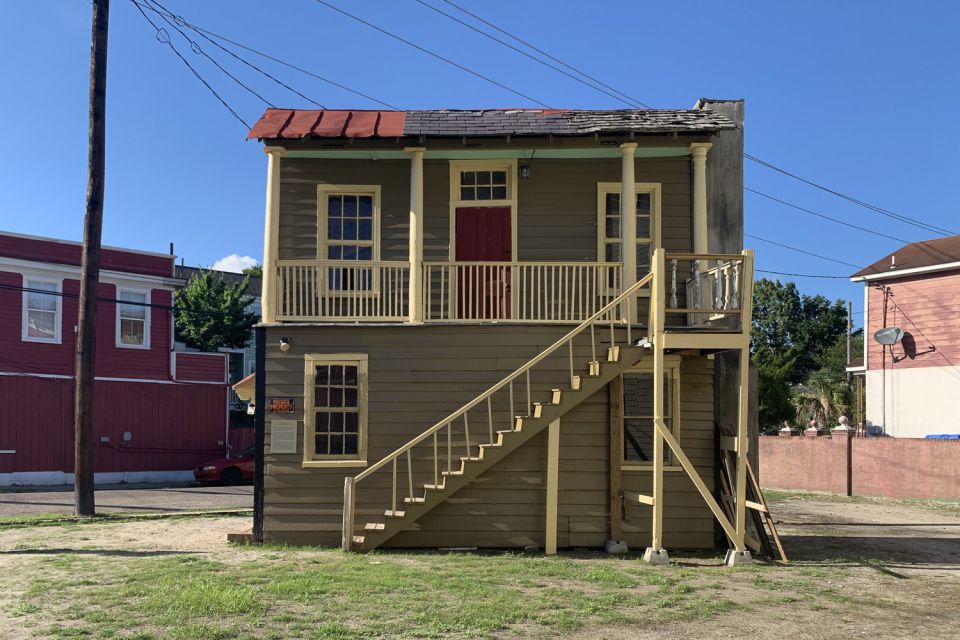
- Charleston’s African-American community has a rich 350-year history, tracing back to the city’s early role in the transatlantic slave trade.
- The Philip Simmons House Museum offers a firsthand experience of the renowned African-American blacksmith’s living and working spaces, showcasing his intricate wrought-iron creations.
- Mother Emanuel African Methodist Episcopal Church, founded in 1816, played a central role in Charleston’s civil rights movement and continues to be a symbol of resilience.
- Charleston’s prosperity, built on the backs of enslaved Africans, gave rise to an entrenched class system, evident in the stark contrasts between elite and working-class neighborhoods.
- The tour provides a nuanced understanding of Charleston’s African-American legacy and the complex history of class division that has shaped the city’s social and physical fabric.
Charleston’s African-American Community
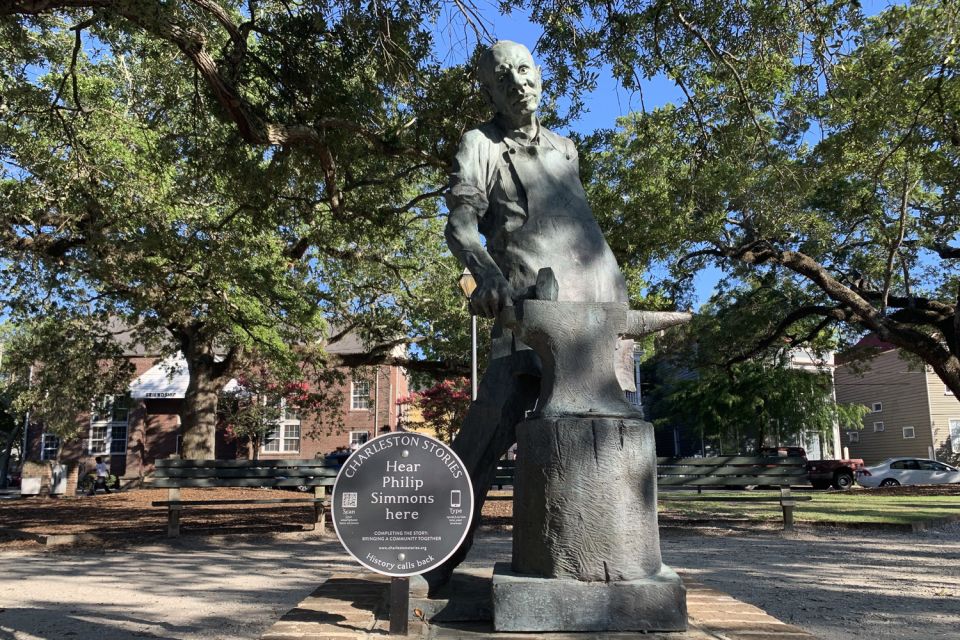
Charleston’s African-American community dates back over 350 years, tracing its roots to the city’s early days as a center of the transatlantic slave trade.
Despite the painful history of enslavement, this community has made invaluable contributions to the culture, economy, and social fabric of Charleston.
Throughout the centuries, Charleston’s Black residents have endured hardship and oppression, yet they’ve persevered, leaving an indelible mark on the city.
From the inspiring leadership of civil rights pioneers to the artistry of renowned craftsmen like Philip Simmons, the African-American experience in Charleston is one of resilience, creativity, and unwavering determination.
This tour offers a glimpse into this rich and complex history, shedding light on the pivotal role the Black community has played in shaping the city’s identity.
You can also read our reviews of more tours and experiences in Charleston.
Philip Simmons House Museum
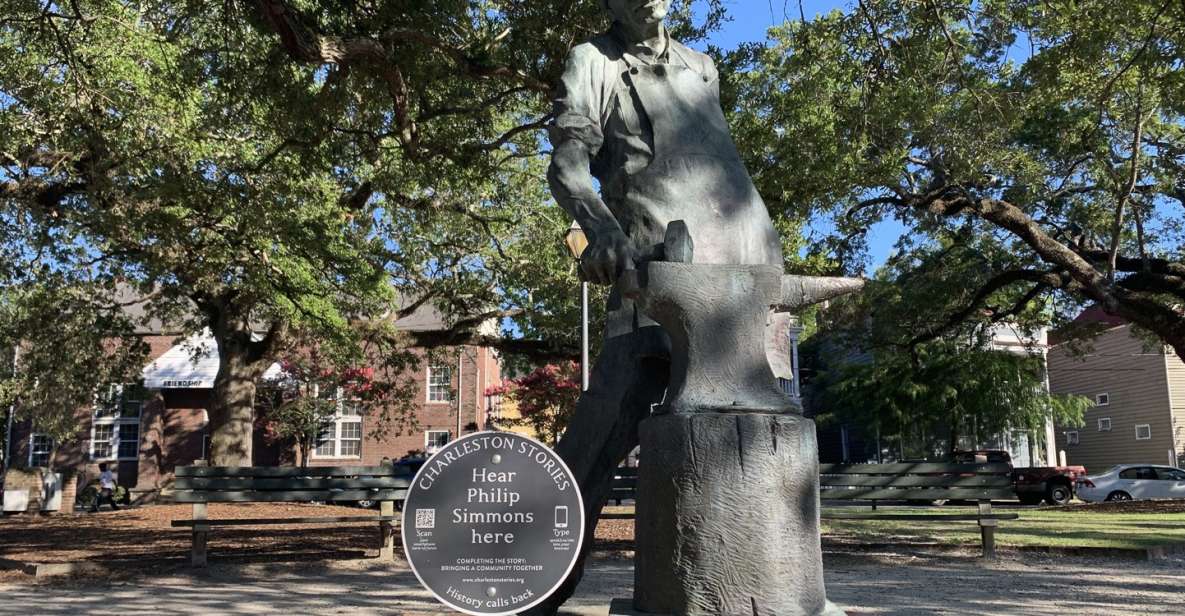
Visiting the Philip Simmons House Museum offers a unique glimpse into the life and legacy of this renowned African-American blacksmith, who spent over seven decades honing his craft and leaving an indelible mark on Charleston’s architectural landscape.
The museum is housed in Simmons’ former residence, allowing visitors to step back in time and experience the artisan’s living and working spaces firsthand.
Guests can admire his intricate wrought-iron creations, which adorn homes, churches, and public spaces throughout the city.
The museum also highlights Simmons’ role as a mentor and teacher, sharing how he passed his skills and passion for metalwork to the next generation.
This intimate setting provides a powerful connection to Charleston’s vibrant African-American heritage.
Mother Emanuel African Methodist Episcopal Church
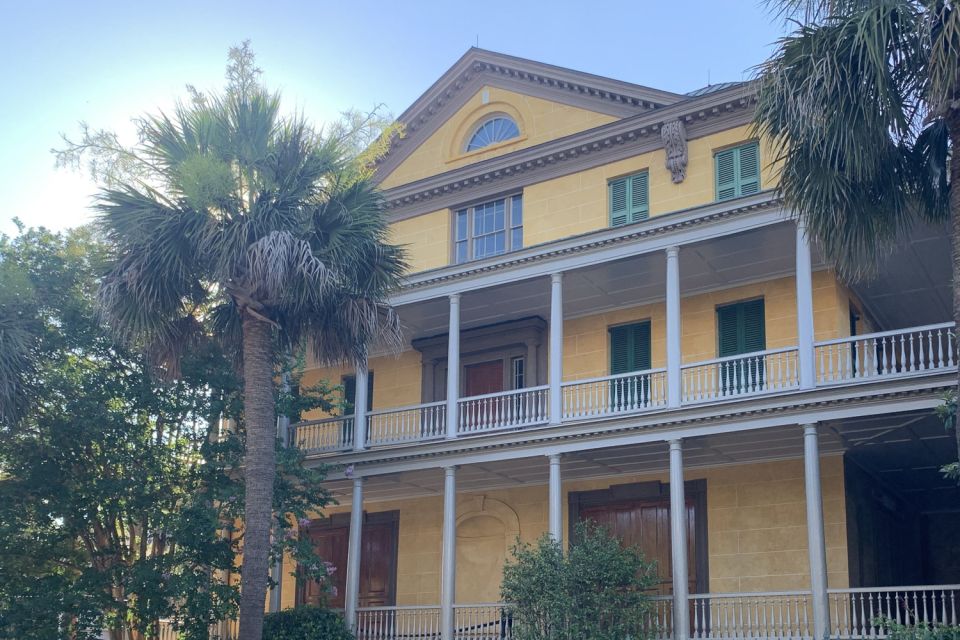
After exploring the Philip Simmons House Museum, the tour continues to the historic Mother Emanuel African Methodist Episcopal Church, a pivotal site in Charleston’s African-American history.
This congregation, founded in 1816, has played a central role in the city’s civil rights movement. Visitors will learn about the church’s resilience in the face of adversity, including the 2015 mass shooting that claimed the lives of nine parishioners.
The tour highlights Mother Emanuel’s enduring significance as a beacon of hope and justice. Guests will gain a deeper understanding of Charleston’s complex racial dynamics and the ongoing struggles for equality.
Established in 1816, one of the oldest African-American congregations in the South. Played a vital role in Charleston’s civil rights movement.
Withstood the 2015 mass shooting that left 9 parishioners dead. Continues to be a symbol of resilience and a hub for social justice.
Offers insight into Charleston’s complicated racial history and progress.
Class Division in the City
The tour also explores the long-standing class divisions that have shaped Charleston’s urban landscape. Visitors learn how the city’s prosperity, built on the backs of enslaved Africans, gave rise to an entrenched class system that persists to this day.
Stark contrasts can be seen in the architecture and neighborhoods, where grand antebellum mansions stand in close proximity to the more modest dwellings of the working class and formerly enslaved populations. Charleston’s historic districts showcase the wealth and privilege of the white elite, while nearby areas reveal the less visible legacies of slavery and systemic racism.
The tour provides a nuanced understanding of how these enduring inequalities continue to shape the social and physical fabric of the city.
More Great Tours NearbyTour Highlights
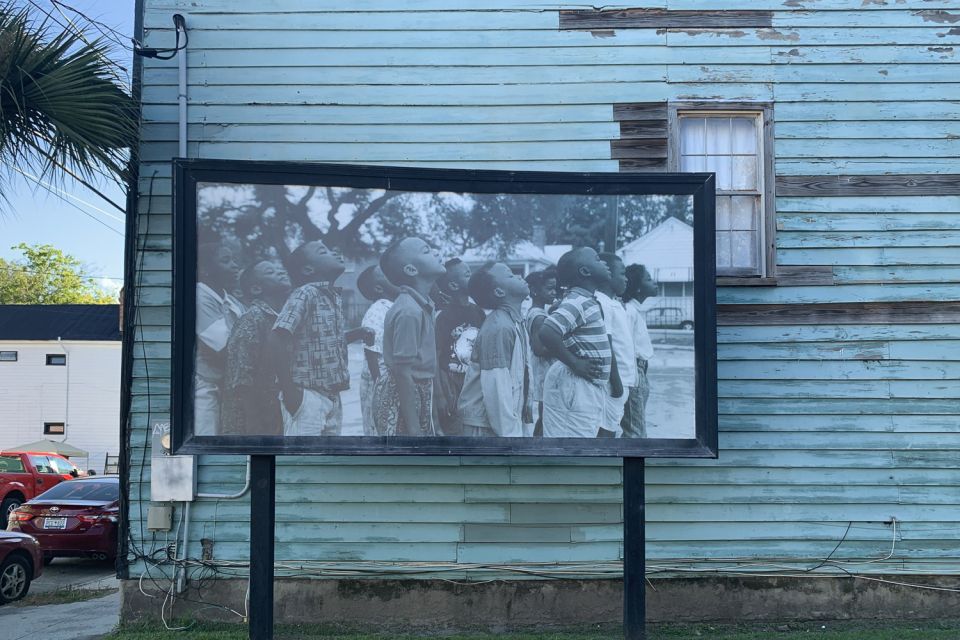
The tour provides an in-depth exploration of Charleston’s 350-year-old African community, unveiling the rich cultural heritage and resilience of its people.
Guests will explore the history and significance of the Philip Simmons House Museum, a testament to the craftsmanship and artistry of a renowned African-American blacksmith.
The tour also includes visits to:
- The historic Mother Emanuel African Methodist Episcopal Church, a site of both triumph and tragedy in the city’s past.
- The Halsey Gallery of Contemporary Art, showcasing the works of local African-American artists.
- Areas that highlight the complex history of class division and its impact on the African-American community in Charleston.
Insights from an expert guide, sharing firsthand knowledge and personal perspectives on the city’s African-American legacy.
- Charleston Walking Food Tour With Secret Food Tours
- Charleston in a Nutshell Private Tours
- Charleston Marsh Eco Boat Cruise With Stop at Morris Island Lighthouse
- Charleston See-It-All Sightseeing Bus Tour
- Charleston: Private Daytime or Sunset BYOB Sailing Charter
- Haunted Evening Horse and Carriage Tour of Charleston
Tour Inclusions
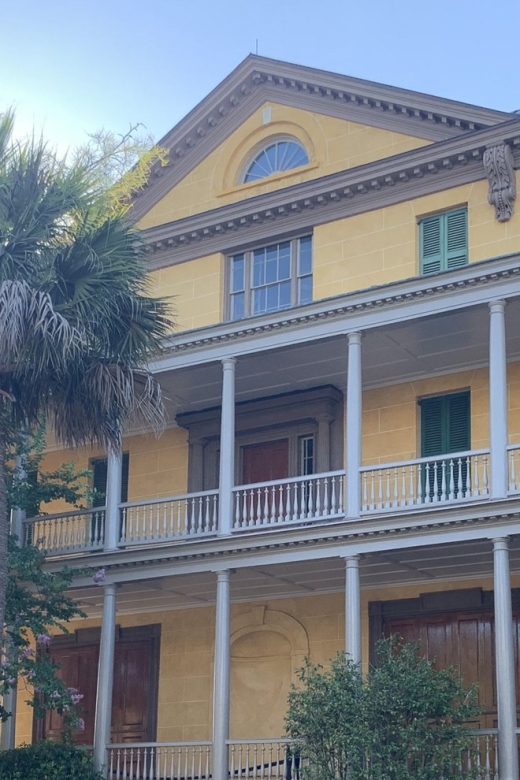
The tour includes an expert guide who provides in-depth knowledge and personal perspectives on Charleston’s African-American history and legacy.
It also provides admission to the Halsey Gallery of Contemporary Art, showcasing the works of local African-American artists, as well as admission to the Philip Simmons House Museum, a significant site that celebrates the craftsmanship and artistry of a renowned African-American blacksmith.
Visitors can expect to gain a deeper understanding of the city’s 350-year-old African community, learning about the complex history of class division and the important role of the historic Mother Emanuel African Methodist Episcopal Church.
The tour operates rain or shine and is wheelchair accessible, with free cancellation available up to 24 hours in advance.
Meeting Point
Visitors meet for the Charleston African-American History & Simmons House Tour on the sidewalk outside the Philip Simmons House at 30-1/2 Blake Street. This convenient location allows the tour to start promptly and efficiently.
The guide will be waiting there, ready to greet the group and provide an overview of the day’s events.
From this starting point, the tour explores Charleston’s rich African-American heritage, including:
- The 350-year-old African community in Charleston
- The historic Mother Emanuel African Methodist Episcopal Church
- The Philip Simmons House Museum, showcasing the work of a renowned blacksmith
- The Halsey Gallery of Contemporary Art
- The history of class division in the city
The meeting point is wheelchair accessible, and the tour operates rain or shine, giving visitors the flexibility to explore this important part of Charleston’s history.
Additional Information
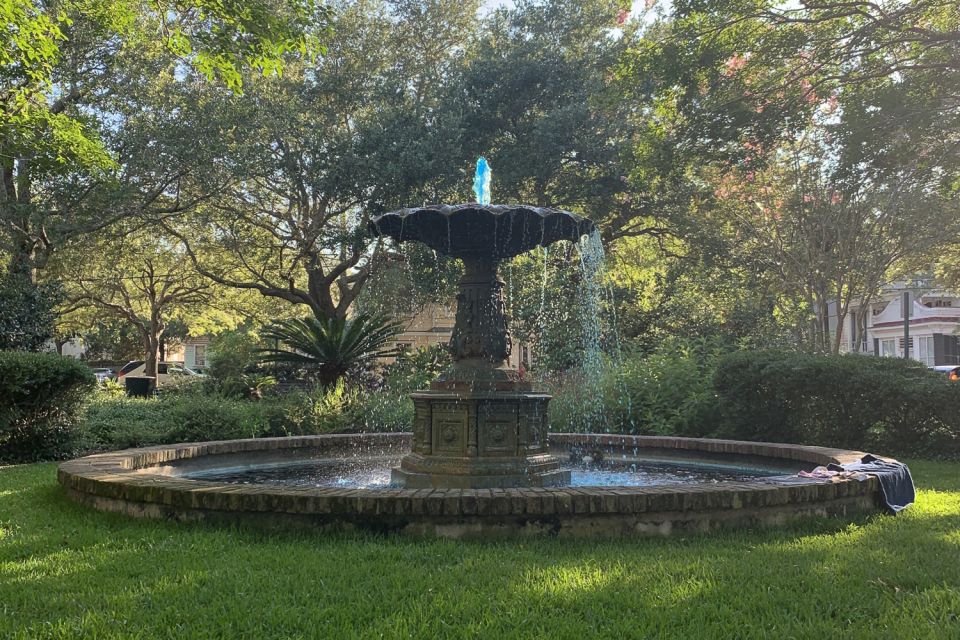
The Charleston African-American History & Simmons House Tour operates rain or shine, ensuring visitors can explore the city’s rich heritage regardless of weather conditions.
Wheelchair accessibility is provided, allowing guests of all mobility levels to participate in the 2-hour experience.
Plus, the tour offers free cancellation up to 24 hours in advance, giving attendees flexibility with their plans.
This thoughtful approach ensures that everyone can fully enjoy the historical narrative and gain a deeper understanding of Charleston’s 350-year-old African community.
From the iconic Philip Simmons House Museum to the historic Mother Emanuel African Methodist Episcopal Church, the tour provides a comprehensive and accessible look at the city’s diverse cultural tapestry.
Frequently Asked Questions
Is Photography Allowed During the Tour?
Yes, photography is generally allowed during the tour, though visitors are advised to be respectful and discreet. The tour guide may provide guidance on appropriate times and places for taking photos to ensure a smooth and enjoyable experience for all participants.
Is There a Dress Code for the Tour?
There’s no formal dress code for the tour, but visitors should dress comfortably and appropriately for the weather. Casual, modest attire is recommended to ensure a pleasant and respectful experience during the cultural exploration.
Can I Bring Food and Drinks on the Tour?
Participants can bring water and light snacks on the tour, but it’s best to avoid consuming anything that could be disruptive or messy. Eating and drinking should be done discreetly to avoid distracting from the informative experience.
Can I Extend the Tour Duration if Needed?
Unfortunately, the tour’s duration is fixed at 2 hours and can’t be extended. However, the tour guide is happy to provide recommendations for additional activities or sites to visit in Charleston after the tour concludes.
Are There Any Age Restrictions for the Tour?
There are no age restrictions for the Charleston African-American History & Simmons House Tour. The tour is suitable for all ages, allowing visitors of any age to explore the city’s rich African-American heritage.
Recap
Charleston’s African-American community has endured hardship yet contributed immensely to the city’s culture.
The Philip Simmons House Museum and Mother Emanuel AME Church offer insight into this complex history, while class divisions continue to shape Charleston’s social and physical landscape.
This tour provides a nuanced understanding of the city’s racial past and its lasting impact.
You can check availability for your dates here:More Historical Tours in Charleston
More Tours in Charleston
More Tour Reviews in Charleston
Not for you? Here's more nearby things to do in Charleston we have reviewed
- Tea Plantation and Winery Tour in Charleston
- Private Transfer From Charleston Airport (CHS) to Charleston Port
- Haunted Pub Crawl for the Broken-Hearted
- Historic Bites And Southern Delights
- Charleston Sunset Private Boat Charter
- Downtown Charleston Birding Tour
- Charleston City to Charleston Airport (CHS) – Departure Private Transfer
- Southern Charm Foods of Charleston Walking Tour By Junket
- Private, Luxury Chauffeured Hourly as Directed Transportation
- Unique Scavenger Hunt in North Charleston by Zombie Scavengers
- Play a Fun Scavenger Hunt in Charleston by Operation City Quest
- Scavenger Hunt by Wacky Walks
